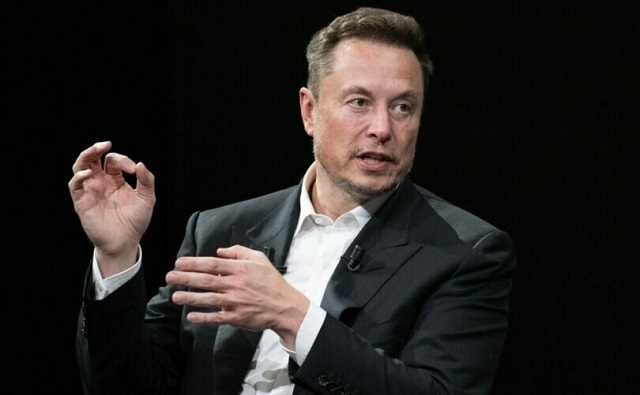Business
Elon Musk says X will disobey Brazil court order to censor accounts, calls on judge to be impeached

Elon Musk, Frederic Legrand – COMEO/Shutterstock
From LifeSiteNews
Elon Musk stated that his social media platform will likely be forced to shut down operations in Brazil as a result of non-compliance with the court order, but argued that ‘principles matter more than profit.’
Elon Musk has pushed back on demands made in a Brazilian court order to censor certain accounts and called for the impeachment of a leading Supreme Court judge.
On Saturday, April 6, X (formerly known as Twitter) announced that it “has been forced by court decisions to block certain popular accounts in Brazil” under the threat of daily fines if the company fails to comply.
Shortly after the announcement, X owner Elon Musk said that the company would resist these demands, even if it had to shut down its operations in Brazil.
“We are lifting all restrictions,” the billionaire wrote. “This judge has applied massive fines, threatened to arrest our employees, and cut off access to 𝕏 in Brazil.”
“As a result, we will probably lose all revenue in Brazil and have to shut down our office there. But principles matter more than profit.”
In another post on X, Musk announced that his social media platform would publish the demands made by Supreme Court judge and head of Brazil’s Superior Electoral Court Alexandre de Moraes. Musk also called for de Moraes to be impeached and referred to him as “Brazil’s Darth Vader.”
“Coming shortly, 𝕏 will publish everything demanded by @Alexandre [de Moraes] and how those requests violate Brazilian law. This judge has brazenly and repeatedly betrayed the constitution and people of Brazil. He should resign or be impeached. Shame @Alexandre, shame.”
— Te𝕏asLindsay™ (@TexasLindsay_) April 7, 2024
A few days prior, journalist Michael Shellenberger published the “Twitter Files Brazil,” which showed how the Deep State, led by de Moraes, had interfered in the 2022 presidential election by pressuring social media platforms to ban accounts that supported sitting president Jair Bolsonaro or questioned the electoral systems.
READ: New ‘Twitter Files’ show how Brazil’s deep state interfered in the 2022 presidential election
Shellenberger wrote:
On March 30, 2022, the day after de Moraes took office as president of the TSE, the TSE mandated Twitter to, within a week and under the threat of a daily fine of 50,000 BRL (US$ 10,000), supply data on the monthly trend statistics for the hashtags #VotoImpressoNAO (“PrinteVoteNo”) and #VotoDemocraticoAuditavel (“DemocraticAuditableVote”).
In 2022, the court coerced Twitter into censoring several accounts, including two elected House members, for allegedly spreading “disinformation” under the threat of heavy fines. Twitter initially pushed back on these requests and appealed the orders but ended up complying with some of the requests due to the pressure of the heavy penalties.
Under Musk’s leadership, the social media platform appears to reject the censorship demands made by de Moraes and risk the shutdown of the company in Brazil.
“At any moment, Brazil’s Supreme Court could shut off all access to X/Twitter for the people of Brazil,” Shellenberger wrote on April 7 while reporting from Brazil. “It is not an exaggeration to say that Brazil is on the brink of dictatorship at the hands of a totalitarian Supreme Court Justice named Alexandre de Moraes.”
“President Lula da Silva is participating in the push toward totalitarianism,” he added. “Since taking office, Lula has massively increased government funding of the mainstream news media, most of which are encouraging increased censorship.”
In response to Musk’s announcement to disobey the court order, Brazil’s Attorney General Jorge Messias demanded “urgent regulations” of social media platforms. According to the Financial Times, Messias said, “It is urgent to regulate social networks.”
“We cannot live in a society in which billionaires domiciled abroad have control of social networks and put themselves in a position to violate the rule of law, failing to comply with court orders and threatening our authorities,” he added.
Musk called on users in Brazil to download and use a VPN (virtual private network) to be able to use the social media platform, should the government restrict access to X.
Alberta
Falling resource revenue fuels Alberta government’s red ink

From the Fraser Institute
By Tegan Hill
According to this week’s fiscal update, amid falling oil prices, the Alberta government will run a projected $6.4 billion budget deficit in 2025/26—higher than the $5.2 billion deficit projected earlier this year and a massive swing from the $8.3 billion surplus recorded in 2024/25.
Overall, that’s a $14.8 billion deterioration in Alberta’s budgetary balance year over year. Resource revenue, including oil and gas royalties, comprises 44.5 per cent of that decline, falling by a projected $6.6 billion.
Albertans shouldn’t be surprised—the good times never last forever. It’s all part of the boom-and-bust cycle where the Alberta government enjoys budget surpluses when resource revenue is high, but inevitably falls back into deficits when resource revenue declines. Indeed, if resource revenue was at the same level as last year, Alberta’s budget would be balanced.
Instead, the Alberta government will return to a period of debt accumulation with projected net debt (total debt minus financial assets) reaching $42.0 billion this fiscal year. That comes with real costs for Albertans in the form of high debt interest payments ($3.0 billion) and potentially higher taxes in the future. That’s why Albertans need a new path forward. The key? Saving during good times to prepare for the bad.
The Smith government has made some strides in this direction by saving a share of budget surpluses, recorded over the last few years, in the Heritage Fund (Alberta’s long-term savings fund). But long-term savings is different than a designated rainy-day account to deal with short-term volatility.
Here’s how it’d work. The provincial government should determine a stable amount of resource revenue to be included in the budget annually. Any resource revenue above that amount would be automatically deposited in the rainy-day account to be withdrawn to support the budget (i.e. maintain that stable amount) in years when resource revenue falls below that set amount.
It wouldn’t be Alberta’s first rainy-day account. Back in 2003, the province established the Alberta Sustainability Fund (ASF), which was intended to operate this way. Unfortunately, it was based in statutory law, which meant the Alberta government could unilaterally change the rules governing the fund. Consequently, by 2007 nearly all resource revenue was used for annual spending. The rainy-day account was eventually drained and eliminated entirely in 2013. This time, the government should make the fund’s rules constitutional, which would make them much more difficult to change or ignore in the future.
According to this week’s fiscal update, the Alberta government’s resource revenue rollercoaster has turned from boom to bust. A rainy-day account would improve predictability and stability in the future by mitigating the impact of volatile resource revenue on the budget.
Business
Higher carbon taxes in pipeline MOU are a bad deal for taxpayers

The Canadian Taxpayers Federation is criticizing the Memorandum of Understanding between the federal and Alberta governments for including higher carbon taxes.
“Hidden carbon taxes will make it harder for Canadian businesses to compete and will push Canadian entrepreneurs to shift production south of the border,” said Franco Terrazzano, CTF Federal Director. “Politicians should not be forcing carbon taxes on Canadians with the hope that maybe one day we will get a major project built.
“Politicians should be scrapping all carbon taxes.”
The federal and Alberta governments released a memorandum of understanding. It includes an agreement that the industrial carbon tax “will ramp up to a minimum effective credit price of $130/tonne.”
“It means more than a six times increase in the industrial price on carbon,” Prime Minister Mark Carney said while speaking to the press today.
Carney previously said that by “changing the carbon tax … We are making the large companies pay for everybody.”
A Leger poll shows 70 per cent of Canadians believe businesses pass most or some of the cost of the industrial carbon tax on to consumers. Meanwhile, just nine per cent believe businesses pay most of the cost.
“It doesn’t matter what politicians label their carbon taxes, all carbon taxes make life more expensive and don’t work,” Terrazzano said. “Carbon taxes on refineries make gas more expensive, carbon taxes on utilities make home heating more expensive and carbon taxes on fertilizer plants increase costs for farmers and that makes groceries more expensive.
“The hidden carbon tax on business is the worst of all worlds: Higher prices and fewer Canadian jobs.”
-

 Alberta7 hours ago
Alberta7 hours agoFrom Underdog to Top Broodmare
-

 armed forces2 days ago
armed forces2 days ago2025 Federal Budget: Veterans Are Bleeding for This Budget
-

 Alberta1 day ago
Alberta1 day agoAlberta and Ottawa ink landmark energy agreement
-

 Artificial Intelligence2 days ago
Artificial Intelligence2 days agoTrump’s New AI Focused ‘Manhattan Project’ Adds Pressure To Grid
-

 International1 day ago
International1 day agoAfghan Ex–CIA Partner Accused in D.C. National Guard Ambush
-

 Carbon Tax1 day ago
Carbon Tax1 day agoCanadian energy policies undermine a century of North American integration
-

 International2 days ago
International2 days agoTrump Admin Pulls Plug On Afghan Immigration Following National Guard Shooting
-

 International1 day ago
International1 day agoIdentities of wounded Guardsmen, each newly sworn in







